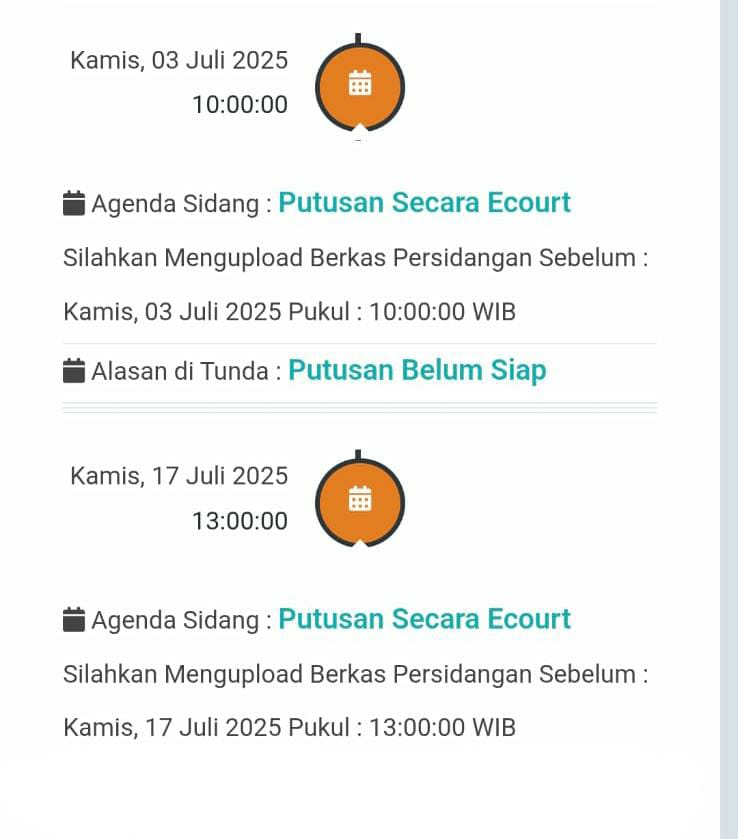9 July 2025 5 menit
Desak Mandiri Verdict Postponed on Decision Day: Where Are Commitments to Justice for Clients and Communities?

PRESS RELEASE
Jakarta, July 9, 2025 — Amid high hopes for justice in the face of environmentally destructive and land-grabbing financing practices, the South Jakarta District Court has postponed the verdict in the lawsuit filed by TuK INDONESIA against PT Bank Mandiri. The lawsuit concerns Bank Mandiri’s financing of PT Agro Nusa Abadi (ANA), a subsidiary of Astra Agro Lestari (AAL), which has been operating oil palm plantations in North Morowali, Central Sulawesi, without the legally required Right to Cultivate (HGU).
Originally scheduled for July 3, 2025, the court’s decision was suddenly postponed to July 17, 2025, without a public hearing. The plaintiffs were only informed of the delay via Indonesia’s e-Court system on the day of the verdict.
“This postponement is not a mere technicality. It prolongs the distress of Bank Mandiri clients who filed this lawsuit because they refuse to have their money used to fund land-grabbing and environmental destruction,” said Linda Rosalina, Executive Director of TuK INDONESIA. “A ruling that could have marked a step forward in financial sector accountability now casts a dark shadow over Indonesia’s legal certainty,” she added.
The lawsuit reveals that PT ANA has been operating its plantation without holding an HGU, in clear violation of multiple Indonesian laws, including the Basic Agrarian Law and the Plantation Law. This legal disorder has led to long-standing social conflicts, intimidation of local residents, and ongoing ecological degradation.
“Agrarian conflicts stemming from plantation operations under Astra Group cover approximately 37,620 hectares and involve at least eight subsidiary companies. Under Indonesian law—including the Basic Agrarian Law (UUPA) of 1960, the Plantation Law, and regulations in the banking sector—every plantation company is legally obligated to obtain a Right to Cultivate (HGU) and a Plantation Business Permit (IUP) before commencing operations,” explained Roni Septian Maulana, Head of the Policy Advocacy and Network Development Department at the Agrarian Reform Consortium (KPA).
Roni also added that the absence of HGU for PT ANA, along with the oversight by the Astra Group and Bank Mandiri, constitutes a serious legal violation. “The postponement of the verdict by the Panel of Judges at the South Jakarta District Court reflects a lack of professionalism in the judiciary and signals an unwillingness to uphold justice in matters of land rights and environmental protection in Indonesia,” said Roni.
Calls for fair action also came from other civil society and environmental organizations. They view this delay as the last opportunity for the court to side with ecological and public justice. “The court should not postpone the decision without clear reasons. Customers need legal certainty that their money is not being used to fund illegal projects. The judges’ decision will be a crucial step determining whether they side with the public or corporations,” emphasized Zaki Amali from Trend Asia.
Meanwhile, environmental organizations like WALHI Riau remind us that this decision will reflect how much Indonesia’s legal system values the environment. “We hope the postponement of the verdict will serve as a crucial moment for the Panel of Judges to ensure that the forthcoming judgment is both accurate and principled—one that upholds the integrity of the environment and contributes to meaningful reforms in the banking sector. Financial institutions must no longer recklessly fund extractive industries that devastate ecosystems and disregard fundamental human rights,” said Boy Even Sembiring, Executive Director of WALHI Riau.
Solidarity also comes from the global community. International organizations such as Friends of the Earth (FoE) and BankTrack emphasize that banks’ responsibility for environmental and human rights violations is non-negotiable. “We stand in solidarity with Indonesian civil society to achieve accountability for the country’s financial sector. The DesakMandiri lawsuit is spot on and supports affected communities that are living the climate and biodiversity crisis every day. The financial sector needs to urgently defund deforestation and human rights violations. We hope the court will use the delay time wisely to study all arguments and make an informed decision that will support and promote human rights and the rule of law rather than corporate interests,” said Danielle from Friends of the Earth.
“Banks have a clear responsibility under international standards to prevent and address the human rights impacts of their financing, and courts must consider these standards carefully. We hope the court will use this additional time to thoroughly review the arguments presented by BankTrack and other allies in their amicus curiae briefs, ultimately delivering a decision that prioritises the rights and well-being of people over corporate interests,” added Ola Janus from BankTrack.
Regardless, the delay of a verdict will not hinder civil society in demanding accountability from banks as a link in the chain of ecological destruction and unconstitutional land grabbing. We urge the public and the media to continue covering this case and not be swayed by narratives that only serve to weaken the voice of the people.
Contact person:
+6287884446640
[email protected]
This post is also available in: Indonesian
